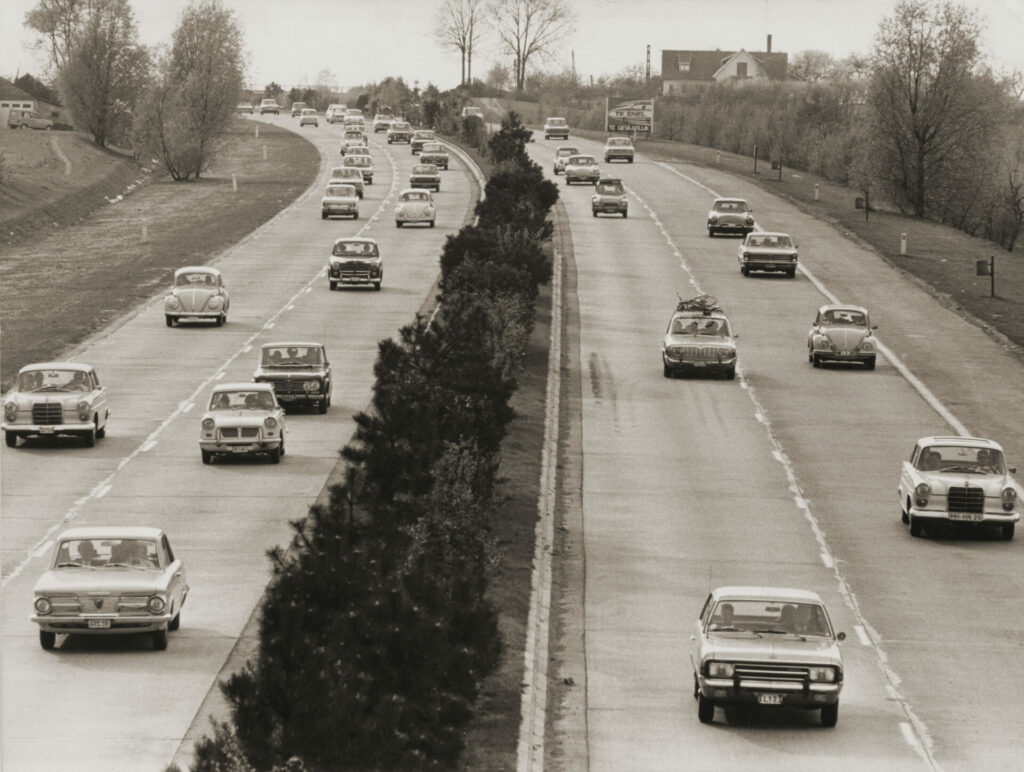Despite having a developed public transport network and a relatively small landmass to traverse, Belgium has a historical affinity for cars that is not always in step with the country's sustainability goals. But could electric vehicles allow Belgians to continue their four-wheeled love affair and make the green transition?
Seven in ten Belgian households own at least one car, according to L'Echo. Multiple historical factors contribute to the country's dependence on this form of transport over any other. Progressive urban sprawl since the 1950s and limited city planning has increased the distance between centres of work and residential areas. Some commuters also live in areas with reduced public transport infrastructure and see cars as their only option.
"Spaces have been compartmentalised: an employment hotspot here, a residential area there... before, areas were denser," CEO of Espaces-mobilité Xavier Tackoen told L'Echo. "This has made us completely addicted to the car."
Enormous population growth in residential areas has increased reliance on the car. Wavre and Waterloo, for instance, have more than doubled their population per square kilometre in less than 60 years. Despite this demographic explosion, "barely more people use public transport today than in the 1960s," Tackoen lamented. "It's a total failure."
Other factors have kept the country hot for cars; the pandemic provoked a big dip in public transport passengers. Although these have largely rebounded, many drivers find the convenience and comfort of their own personal vehicle difficult to give up.
Search for solutions
Politically, Wallonia has taken steps to address these structural problems with the introduction of the Territorial Development Code, which aims to "preserve as much land as possible from development, combat urban sprawl and control mobility."
The response to similar issues in the Brussels-Capital Region focuses more heavily on industry. While the car sector already enjoys significant tax breaks, the government has introduced further incentives to encourage the purchase of cars that don't emit greenhouse gases. There will be a 100% tax break for the purchase of these vehicles from 2026, and the City of Brussels aims to be free of combustion-powered vehicles from 2030.
These measures, coupled with the introduction of Low Emission Zones in 2018, have had a sizeable impact on the type of vehicles favoured by consumers: the Belgian car fleet now comprises just 36% diesel engines (down from 63% in 2014).
Company cars rule
2023 marked a significant upturn (30%) for the car sector which had experienced a severe dip during the Covid-19 pandemic. The rise in sales might be correctional, but it nevertheless reflects the unwaning enthusiasm for cars among Belgians.
Almost half of vehicles sold in 2023 were electric. However, 83.8% of electric vehicles registered in Belgium are company cars, largely due to the attractive tax breaks on offer. In contrast, individuals are much more reticent to buy into the electric craze.
Related News
- Car sales bounced back in 2023, almost half were electric
- 2024 to be the year of the electric car, Belgian automobile sector predicts
- The premium people's car: BMW again top brand for new car sales in Belgium
According to the Grand Baromètre survey conducted by Ipsos, Le Soir and RTL Info, 48% of Belgians are not yet ready to buy an electric car. The main factors at play are cost (75%), polluting engines (45%), lack of charging points (43%) and low battery range (39%).
In spite of this reluctance, Belgian car federation FEBIAC remains optimistic about the future of the electric vehicle. "It is entirely possible that electric vehicle sales will exceed 50% of total sales in 2024," stated spokesperson Filip Rylant.
"There is every reason to believe that this symbolic threshold will be passed. The year 2024 could well be the year of the electric car."

